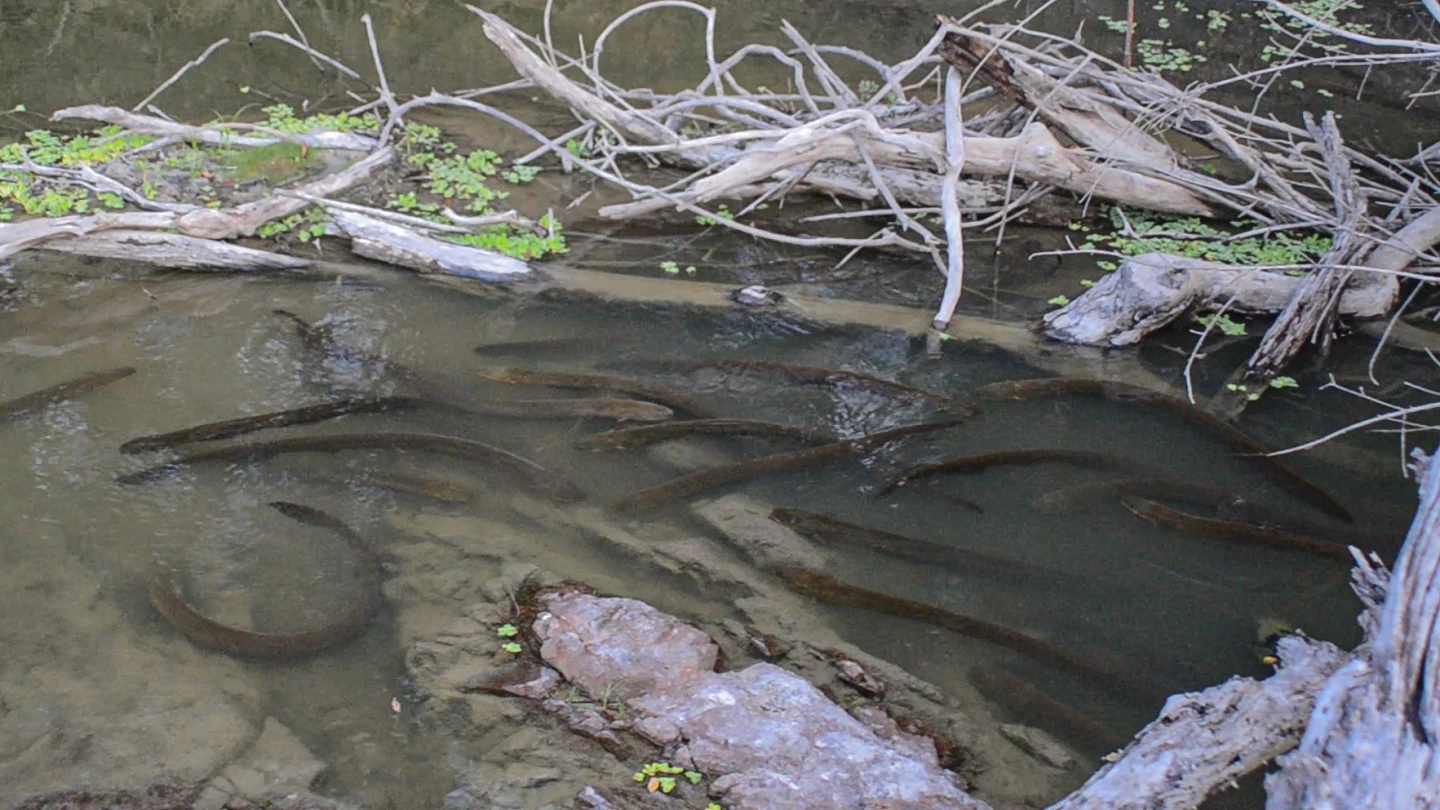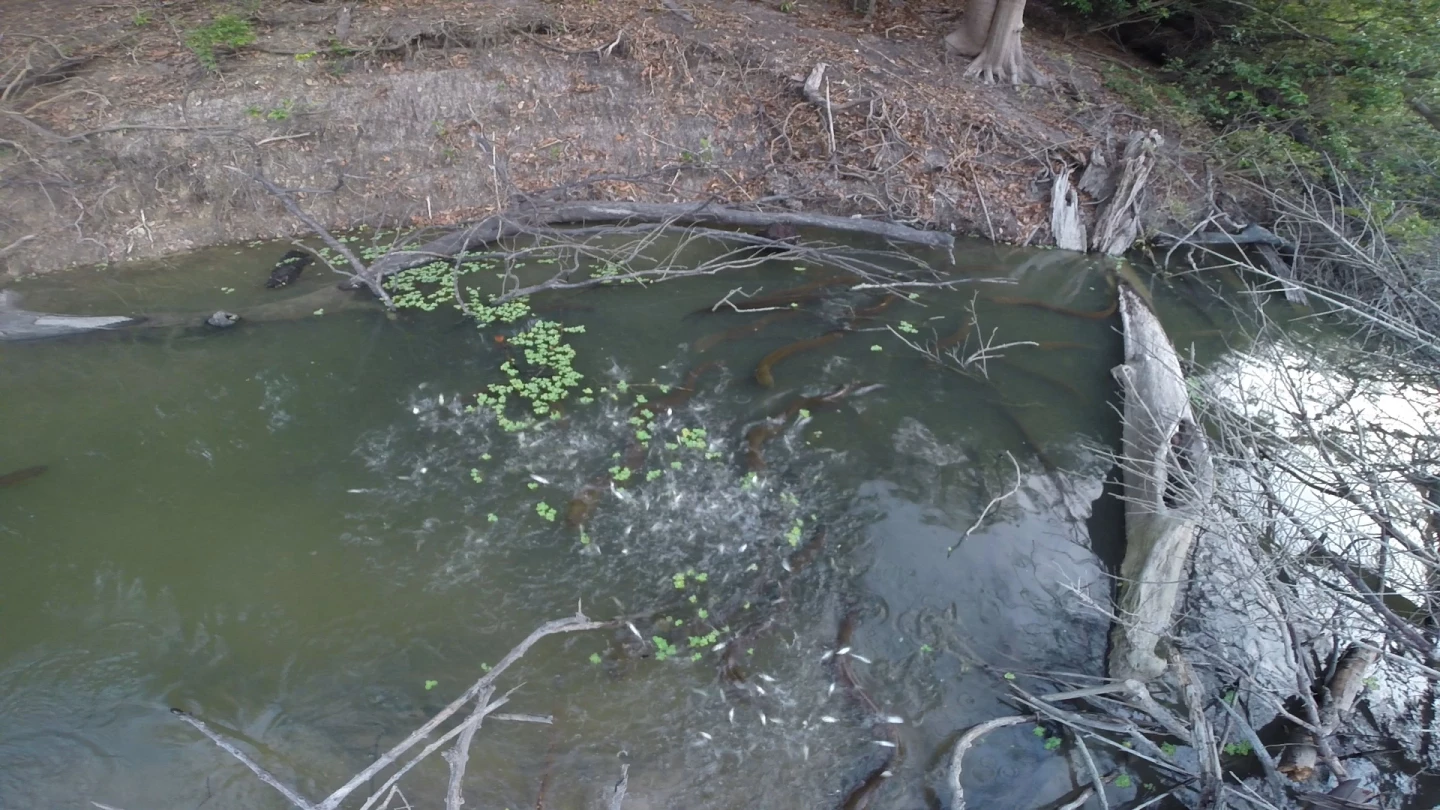It has generally been thought that electric eels are purely solitary animals, which stalk prey on their own. Now, however, scientists have described seeing the creatures hunting in packs – which only nine other fish species are known to do.
Although a paper on the finding was published just this week, the initial observations of the pack hunting strategy were made back in August of 2012.
At that time, a team from the Smithsonian Institute’s National Museum of Natural History came across a small river-fed lake along the banks of the Iriri River in Brazil. That lake contained over 100 adult electric eels, some of which were up to 4 feet (1.2 m) long.
The electric eel, incidentally, is actually a type of knifefish, and not a true eel.

Led by research associate Carlos David de Santana, the scientists watched as the eels worked together to herd thousands of small tetra fish from deeper water into the shallows, concentrating the schooling fish into a tight ball. Smaller packs of about 10 eels would then split off from the main group, surrounding the ball and emitting electric shocks that stunned the tetras, allowing them to be easily caught and eaten.
On a subsequent expedition to the same area in October 2014, then-Master of Science candidate Douglas Bastos observed the same behavior. It was found to occur mostly at dawn or dusk, with each hunting session lasting about one hour and involving five to seven electric-shock attacks.

"This is the only location where this behavior has been observed, but right now we think the eels probably show up every year," says de Santana. "Our initial hypothesis is that this is a relatively rare event that occurs only in places with lots of prey and enough shelter for large numbers of adult eels."
Another expedition to the lake is now being planned. The scientists hope to measure electrical discharges made by the group of eels, to see if they're using low-voltage shocks to communicate hunting strategies in the same manner that whales and dolphins coordinate their hunting efforts via acoustic signals.
The research paper was published on Jan. 14th in the journal Ecology and Evolution.
Source: Smithsonian






